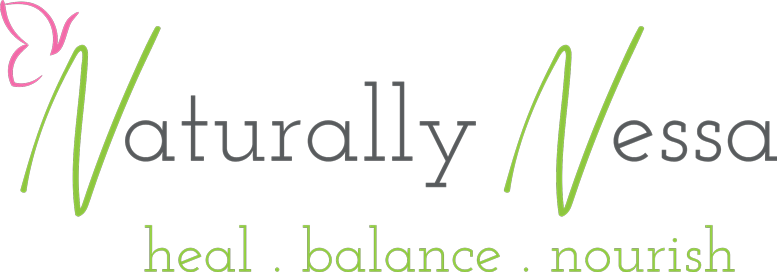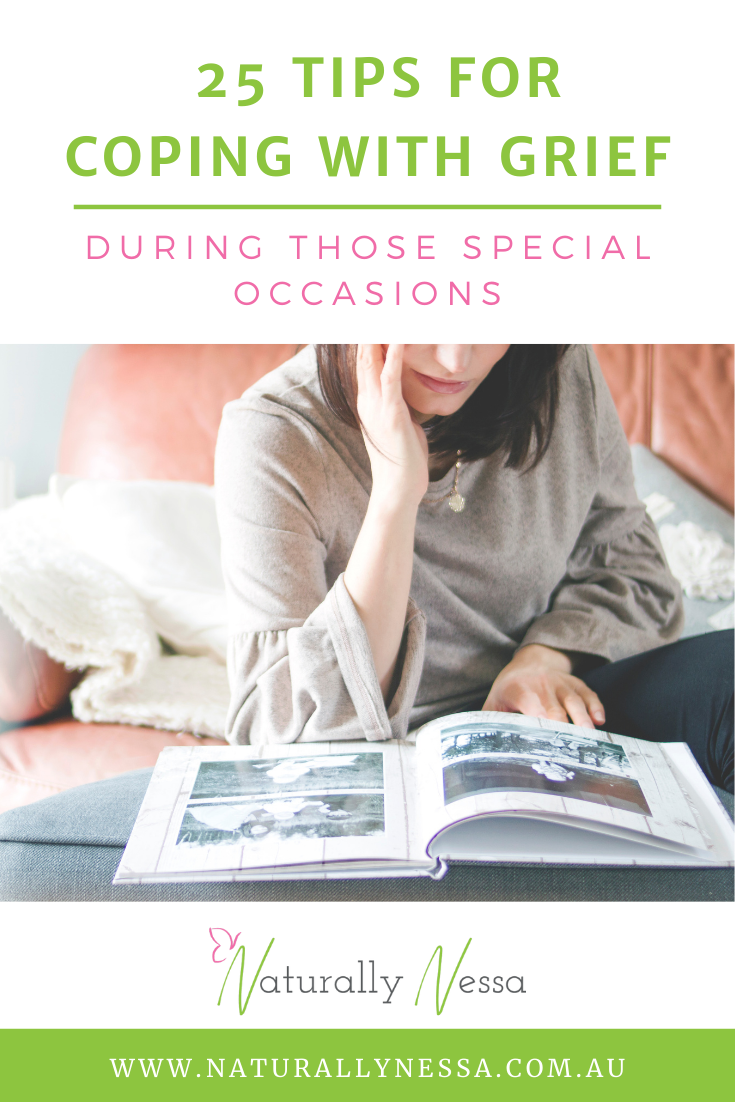Grief And How Anniversaries Affect Us
Holidays and anniversaries can be an unbearable time for those grieving, no matter how much time has passed.
These events naturally bring up memories, as they’re centered around family togetherness and the absence of those we have lost is felt tremendously.
We need to recognise that because these special events involve joy and celebrating, those grieving may not feel supported as their feelings are not aligned with happiness.
And if those grieving do join in with the celebration, we need to understand that it’s also natural for waves of guilt to be present. For being happy, even briefly, feels like they have forgotten the one they are grieving and in a way feels like an act of betrayal. This in turn will bring another wave of grief and guilt over them.
Grief isn’t a linear emotion, it’s a messy unravelling that can change at a moment's notice. So be patient and understanding, whether it’s for yourself or someone close to you.
We have collectively all experienced a variety of different types of grief and have mourned things that we hoped could happen but didn’t.
For some, that means they experience grieving as a dull numbed emotion and have exhausted every bit of their emotional energy already.
For others, they may sit in the ‘what if’ and wish there was a rewind button to go back or a fast forward button to skip their grief.
There is no right or wrong way to grieve, it’s more about being present and acknowledging that in order to move forward we need to give ourselves space to recognise the physical loss of the person that is no longer with us.
My wish for you is to be gentle with yourself whether you feel you are drowning in grief or feeling frozen and unable to grieve yet.
And remember…
Reaching out for help is - in itself - an act of courage and strength.
Sometimes being alone during an anniversary is just what we need, but other times it can be extremely detrimental to our health and well-being.
Listen to your body and don’t be afraid to do what it is asking you to do.
NAVIGATING YOUR EMOTIONS AS AN ANNIVERSARY APPROACHES
Along with holidays and anniversaries comes traditions, and recognising your emotions may need you to skip some or even create new ones is important. But no matter what traditions you choose to include, remember to live in gratitude for all the wonderful memories that have already been created.
Remove all Expectations: The biggest lesson is to not place any extra expectations on yourself. Give yourself permission to be real with where you presently stand in life. Grieving is an honouring of love and a precious act of humanity. Be present with it. Let it flow through you. This is not the time to add stressful situations on top of what you are already experiencing.
Open Communication: When those who love us are aware of how we are feeling, it opens the door for honest conversations that can support us. The passing of a loved one often gives us the tender firsthand knowledge that time is our greatest gift. If you have the energy, share this wisdom with those around you. The gift of presence can be so meaningful to those who truly care. With that in mind, sharing time with people who tenderly support you in your grief can remind us that we don’t have to be alone all the time.
Honouring Precious Moments: As much as you may not want to recognise it, your life has changed and that deserves recognition in deeply meaningful ways. This is the time to honour the past, celebrate the present, and dream for the future. Letting go of the past will be painful, but can also be a ceremony which can then offer space to reimagine how your loved one would want you to move on.
Incorporate Self-Care: Be patient and oh so very tender with yourself. Grief permeates our body, mind, and soul. It is so important to embrace self-care.
Holidays or not, this is the time to rest, choose what activities or events “fill you up” and allow yourself to NOT attend the activities that don’t!
Breath, rest, fresh air, movement, sunshine…. repeat. Give yourself extraordinary amounts of tenderness and love.
GRIEVING IS THE CONSEQUENCE OF EXPERIENCING LOVE
Our heart connection is such a precious gift, and even though we can no longer physically touch our loved ones, that connection will always remain.
So, honour them by living your life the way they would want you to live, not only in the sadness you are feeling but also in joyous celebration. You know you would want them to do the same if the situation were reversed.
Share your moments with them (their soul is still very much with you) and if a flood of emotion happens, welcome it, joy and sadness can exist side by side.
Take away the pressure of what you believe is right and wrong and give yourself permission to live in the moment with your needs and emotions.
Grieving and mourning are normal, healthy, and a precious reminder to show gratitude for the blessing of having that person in your life, no matter how long or short it may have been.
Keep in touch with someone that loves you wholeheartedly. Share with them how you are feeling and if you’re feeling overwhelmed, ask them to check in with you every now and then.
This way if you do fall down a rabbit hole of despair, they can come over and coax you out to greet the sunshine or take a shower.
Rabbit holes are real and sometimes therapeutic, we just don’t want to get stuck in them for too long.
And as we start to move on, one thing I’d like to bring some awareness to is, our body stores emotional memories and responds with a physical response, even when we are unaware of the trigger.
So make a point of regularly checking in with yourself.
It may be that your body has recognised an anniversary or a trigger before your mind has had a chance to realise it.
Give yourself tenderness through those times.
Don’t beat yourself up for forgetting or not remembering.
And above all, continually show yourself love and compassion while you navigate the next stage of living and grieving.
TIPS FOR COPING WITH GRIEF DURING THOSE SPECIAL OCCASIONS
Above anything else remember that what you feel is exactly right for you. Don’t let other people's opinions count. Listen to your heart, listen to your body and listen to the guiding voice of your soul nudging you in the right direction.
1. Remember, it’s okay to be happy – this doesn’t diminish how much you love and miss your loved one. So don’t feel guilty for the little pieces of joy that come your way.
2. If you can’t face the anniversary or holiday it’s okay to skip it. Before you completely skip it though, consider if you could just simplify the day.
2. Decide which traditions you want to keep or change.
3. Create a new tradition in memory of your loved one.
4. Create a ‘memory box’ - you can write down memories you treasure as they come to you, along with pictures you love. That way when moments are tough you can sit down and reminisce.
5. On important days light a candle in your home in memory of the person you’ve lost.
6. Make one of your loved one’s favourite dishes.
7. Be honest. Tell people what you DO want to do for the day and what you DON’T want to do.
8. Maybe now is the time you put yourself first and go see a therapist. The holidays are especially tough, so this may be the time to talk to someone.
9. Journal your good and bad days, reading them back will help you see how far you have come or make you realise it’s time you open up the wound to ultimately try to heal.
10. Honour your loved one by pulling out old photo albums and spending some time looking at the photos.
11. Remember that crying is okay. The holidays are everywhere and who knows what may trigger you. We’ve all been there and it is okay to cry (even if you’re walking through the deli at your local grocer's).
12. Let your perfectionism go. Accept that this year may not be perfect and that is okay. I know this is easier said than done for some, but give it a try.
13. Seek gratitude. Try to find one thing each day throughout the holiday season to be grateful for. Write it down, photograph it. Just look for the little things.
14. Buy a gift you would have given to your loved one and donate it to a local charity.
15. Have a moment of silence during your day or share a toast in memory of your loved one.
16. Identify the people who will be able to help and support you during the holidays and identify who may cause you more stress.
17. Pick a few special items that belonged to your loved one and gift them to friends or family who will appreciate them.
18. Practice self-care – whatever it is that helps you recharge, do it.
19. If you have been having a hard time parting with your loved one’s clothing, use the holidays as an opportunity to donate some items to a homeless shelter or other charities.
20. Go to a grief group. When everyone looks so filled with holiday cheer, sometimes it is helpful to talk with others who are struggling.
21. Visit your loved one’s grave and leave flowers or another meaningful item.
22. Play your loved one’s favourite music.
23. Ignore people who want to tell you what you “should” do for the holiday. Listen to yourself, trust yourself, communicate with your family, and do what works for you.
24. Talk to kids about the holidays – it can be confusing for kids that the holidays can be both happy and sad after a death. Let them know it is okay to enjoy the holiday, and it is okay to be sad.
25. Prioritize and don’t overcommit. When the holidays are filled with so many parties, dinners, and events, save your energy for those that are most important. Look at everything you have to do and rank them in order of importance. Plan for the most important and skip the rest.
As painful as it is, grief is a completely natural response to the loss of someone who has touched our heart. So it’s going to take time and compassion to be able to heal and move forward. Be gentle with yourself and listen to your body and your thoughts and acknowledge how you are coping. If it all gets too hard, reach out to a therapist or a friend.
Part of my journey as an End of Life Doula is to also help those who have lost their loved ones to keep the connection open and to heal the physical wound of their loss. Please know I am always here to help and I’m only a phone call away 🙏🏼
PIN FOR LATER


